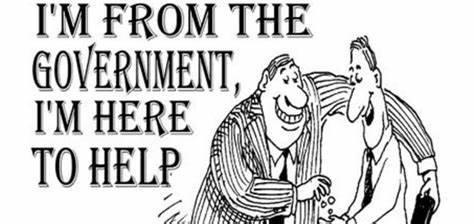Way to bring back your business on track post-COVID-19.
Page Contents
Way to bring back your business on track post-COVID-19

With the aid of exceptional public health and economic policies, India is facing the COVID-19 pandemic. The situation at Corona has forced businesses in a tight spot. Looking towards facts, the country has around 63 million enterprises providing services to over 114 million people and producing approximately 30% of GDP.

According to GOQII’s latest survey, about 26 percent of enterprises said their earnings and expenditures were largely impacted due to the virus outbreak. Small and medium-sized companies are suffering from issues such as lack of manpower and weak cash flow or liquidity. In the current situation, RBI’s decision to delay loan repayment for small and medium enterprises has come as a refreshing relief. Also the body of industry, CII has urged the government to set up the ‘CII COVID Rehabilitation and Relief Fund’ to support small and medium businesses.
Some of the ways in which the Government can help the different sector get a boost are described below:

1. Measure the Financial loss
This would be the first step in helping businesses survive after the crisis. Taking stock of the financial losses for months caused by a lack of employment would help the businesses take steps to restart. The enterprises will first and last be updated with their working capital and statements of profit and loss. This would prove to be extremely beneficial in making connections with the numbers of the previous year which would help to determine the figures that the company needs. This will also be a good idea to plan for consumers who have moved to rivals due to cost reduction in marketing and advertisement.
Know about- Effective work from home and challenges and advantages
2. Long term tenures
The companies are looking for the Government’s financial help. The Government’s relief of the enterprises from loan repayments has come as a relief for this portion. Definitely this move will help them to overcome financial problems. Relieving bad loan standards for this particular industry may also be a saving move
3. Limits to working capital
With effective credit rules, the CII suggested raising working capital limits. Small enterprises will need additional working capital equal to the investors’ April-June wage bill (backed by a government guarantee of 4-5 percent with an RBI refinance guarantee) to leap out.
4. Agreement of Funds
Even in usual times, small enterprises find it difficult to arrange cash for the management of operations. So expecting them to arrange for cash in this serious emergency will be far too much. It is quite likely that, while trying to emerge from the pandemic effect, small businesses would require unsecured working capital loans to start their business. Quick bad credit business loans and online small business loans India are other financing solutions that can allow enterprises to get back on track post-COVID-19.
5. Project Long Term Repo
The Reserve Bank of India recently launched Long Term Repo operations worth Rs 100,000 crore to support financial institutions expand lending at affordable interest rates to keep the MSME segment functional. The Government-led banks are also encouraged to keep Rs 60,000 crore worth of loans ready. In addition, the Finance Minister announced the extension of the last date from March 31 to June 30 to file overdue Income Tax Return for all companies for the 2018-2019 FY. Also, the GST Returns deadline now is June 30.
6. Export market Inventory Management
The management of inventories may be a great support for exporting businesses. The development of warehouses at the block-level has been introduced in the Union Budget 2020. If the government could assign subsidized warehousing to exporters while organizing the supply chain side of things to improve the economy, it would be an advantage.
The government can decrease the load on the micro, small and medium enterprises sector with the help of the above-mentioned measures and immediate action. It has also been suggested that government agencies should not introduce delay fines as interruptions are clear due to the challenges created by the lockdown.
7. Make-in-India
Maybe now is the best time for the government to request that MSMEs generate locally. The Government’s e-Marketplace can be of great benefit to suppliers requiring procurement. Encouraging small companies to locally source and invest in online infrastructure will help improve the manufacturing sector and also raising our import costs.
8. Improving new ways of marketing the brand

The COVID-19 pandemic is possible to modify customers ’ buying behavior. Therefore businesses, especially small businesses, would do well to embed it in their pattern of work. But if you want to raise the lockdown people would always hesitate to join crowded places and markets. Even business managers may avoid trade shows and events. Organizations that previously relied heavily on people who talk to customers will now have to modify new ways of selling their goods and services.
9. Informed to the customer
Businesses, especially the smaller ones, will do well not to forget that while people’s buying habits will most likely shift, their existing clients will always yearn for some relaxation they used to get from you. So it’s important that small businesses let their customers know they’re up and running once again. We will also do well to allow their consumers aware of their post-COVID-19 policies. And a few clients will also want to support and encourage a local and small enterprise that has strongly faced the crisis and is now making a comeback.
10. Settlement of outstanding due
The industry body also recommended outstanding clearance of all government dues to MSMEs, including MSMEs’ procurement payments for products and services to PSUs, GST refunds, various state and central government bonuses for MSMEs.
